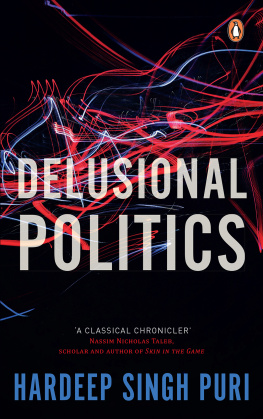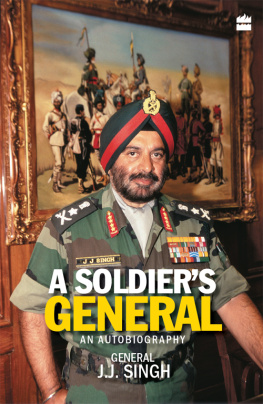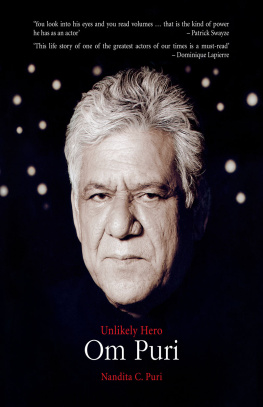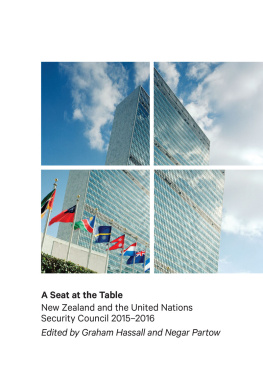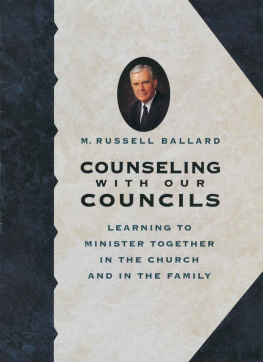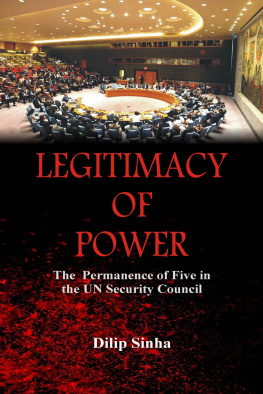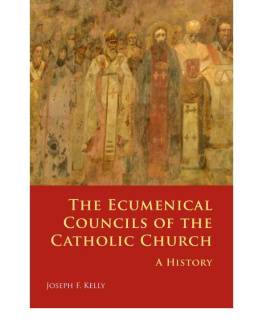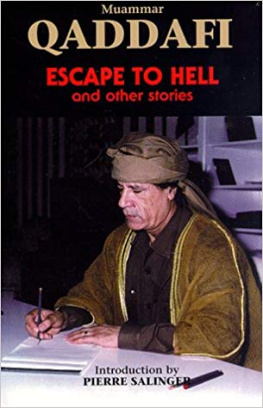Table of Contents
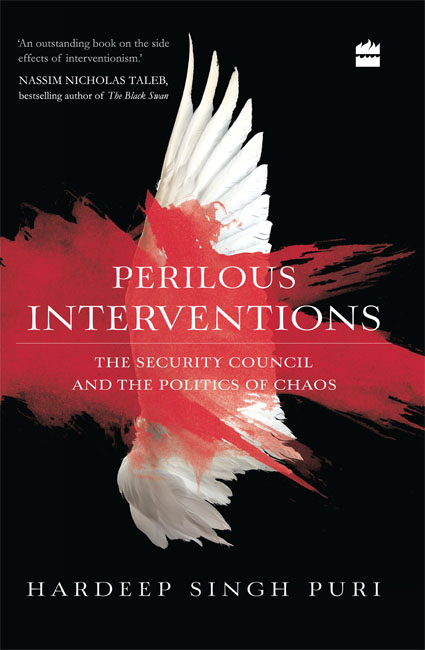
PERILOUS
INTERVENTIONS
The Security Council and the
Politics of Chaos
HARDEEP SINGH PURI

HarperCollins Publishers India
For my granddaughter Amaya Zai, in the hope that her generation will be dealt a better hand
CONTENTS
Reforming the UN No Longer an Option
H ardeep Singh Puris Perilous Interventions comes at a pivotal moment for the United Nations (UN) and the global system at large: a time of great potential, but also, to borrow a word from its title, a time of great peril and uncertainty.
Seventy years ago, when the UN Charter affirmed our collective determination to save succeeding generations from the scourge of war, the founding fathers probably did not anticipate the drastic changes we are witnessing todaychanges that compounded the threats, challenges and risks to our collective security. From rampant povertywith the frustration and anger it createsto the mutating threat of violent extremism and terrorism; from the double-edged sword of new technologies to the existential risks posted by climate change and natural disasters. These are challenges that are transnational, enormous, complex and deeply interconnected. They are challenges that no one country or even a group of countries can single-handedly overcome. As a result, the world has no option but to look at the UN and rethink the virtues of multilateralism.
At its essence, this is the fundamental message of this book. By taking a series of case studies of how the Security Council operated during critical moments in recent history, how the behaviour of member states affected our peace and security landscape and how intervention was too often the answer over preventive diplomacy and mediation, it reveals how severely we, as an international community, need to do some soul-searching, to think back to why the UN was set up in the first place and to rethink how the existing structuresabove all, the Security Councilneed to be adapted in order to suit the challenges of today.
Reforming the UN is no longer an optionit is a prerequisite for a sustainable global order. The reviews of peacekeeping operations, the peace-building architecture and the status of the implementation of the women, peace and security agendas are significant inputs in this debate. The recommendations they present go a distance in bridging the gap between what the organization is expected to achieve and what it is actually accomplishing on the ground. But meaningful reform at the UN is a deeply political issue, one that requires vision and boldness. Among these issues, I believe that reforming the Security Council should be a priority.
On the one hand, there is a need to strengthen the Security Council by ensuring better representation for developing countries, in both the permanent and non-permanent categories. On the other hand, and while the circumstances might not yet be fully ripe for drastically changing the way the veto power is applied, the five permanent members should consider voluntarily refraining from using the veto if a measure brought to the Council garners the support of the rest of the membership of the Council. In other words, if fourteen of the fifteen members of the Security Council vote for a resolution, this expression of global will should not be so easily dismissed, in particular in the case of resolutions dealing with war crimes, crimes against humanity, genocide and cessation of hostilities between belligerent parties. Without some kind of change to the Security Council, there is little hope that the multilateral apparatus can better serve our world today. At the end of the day, it is the fulcrum of international decision making and the only forum where force can be legitimately authorized.
Reform, however, is needed in other fora. The General Assemblywhere all 193 member states have an equal voiceneeds to be empowered in order to have its share in the responsibility for the maintenance of international peace and security. UNGA Resolution 377A, also known as Uniting for Peace, should be revisited and revitalized. This is another way to allow the organization to act in case the Security Council fails to do so, as a result of lack of unanimity amongst its five permanent members. In this regard, I would highlight that the 2015 resolution, titled Revitalizing the Work of the General Assembly, is a step in the right direction. For the first time since the establishment of the UN, there is a clear call for transparency in the process of selection of the secretary-general. Strengthening the General Assembly and its decision-making process will lead thereby to a more representative and democratic UN system.
The recommendations put forward by last years series of review processes present the potential for extremely important reforms. I would like to commend the emphasis placed by the High-Level Independent Panel on UN Peace Operations on the primacy of politics. As we discussed in the Arab High-Level Workshop, organized by the Cairo Center for Conflict Resolution and Peacekeeping in Africa in March 2016, this should mean a shift from conflict management to conflict resolution as the guiding rationale for all UN peacekeeping and special political missions. Failure to do so would result in protracted conflict, as we saw in Palestine and as we see today in Syria, to which a chapter is devoted in this book.
I would also like to highlight the emphasis placed by the reviews on partnerships, especially between the UN and regional organizations. On the one hand, the partnership between the UN and the African Union must enter a new phase towards a strategic partnership, where the UN supports African plans, most notably Agenda 2063 and its leading initiative to silence the guns by 2020. On the other hand, the UN and the League of Arab States should seek to explore avenues for further cooperation and coordination. Partnerships with regional organizations provide an important lifeline for the multilateral systems continued relevance and effectiveness: the tools, legitimacy and local knowledge they can provide are invaluable.
The failures in international diplomacy that this book catalogues are a clarion call for the need for change, in our existing structures and our collective behaviour and attitudes as a community of states. Its author has the unique ability to claim that he was right from day one: Indias position on Libyan intervention in 2011 was cautious and sober. It reflects a style of prudent and seasoned diplomacy that I came to know well as Egypts ambassador to India from 1983 to 1986. More importantly, the authors arguments are based on years of first-hand expertise in a multi-decade career as a professional diplomat, one whom I came to know well over the years from his earliest days in Geneva, throughout my decade-long tenure as Egypts foreign minister and subsequently secretary-general of the Arab League, to our multiple interactions with the International Peace Institute (IPI) sessions in Salzburg, Vienna and New York and, more recently, in his capacity as secretary-general of IPIs Independent Commission on Multilateralism. I hope that this books message is heard, internalized and acted upon.
Cairo
June 2016
Amre Moussa
Former Secretary-General of the League of Arab States,
Foreign Minister of Egypt, Permanent Representative of Egypt to the UN, and Ambassador of Egypt to India
T he idea of this book took shape when India served its seventh term as an elected non-permanent member of the United Nations Security Council (UNSC) in 201112. As I saw the Libyan and Syrian crises unfold, I had the same sense that Tuchman evoked: of decision makers acting against their own interest. In doing so, they did not weigh the consequences carefully, shut out sound advice and better judgement because they seemed inconvenient, and ignored perfectly feasible alternatives.


